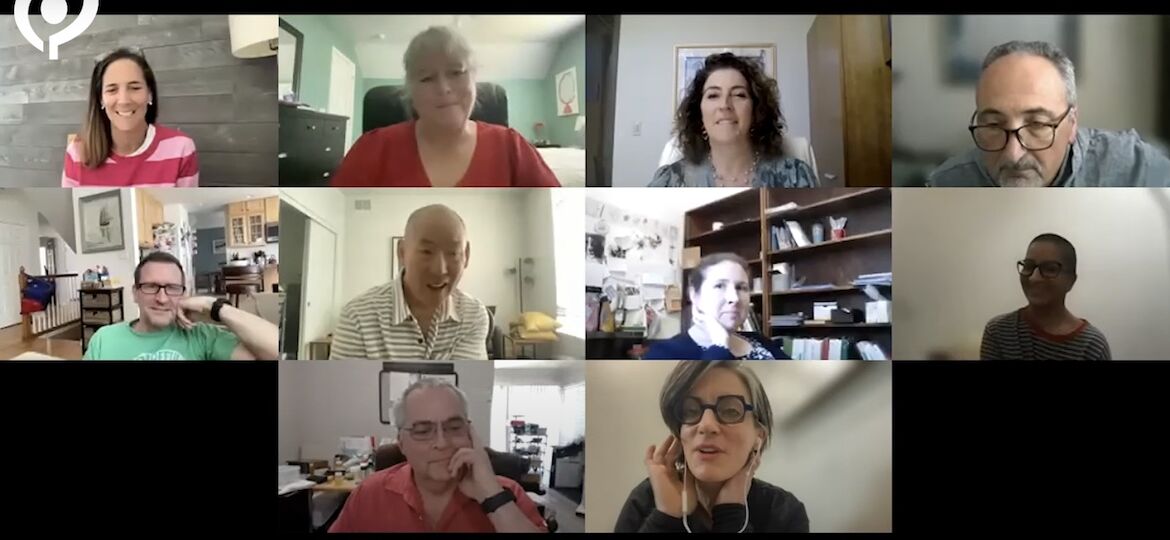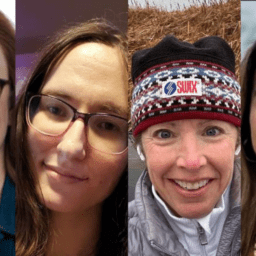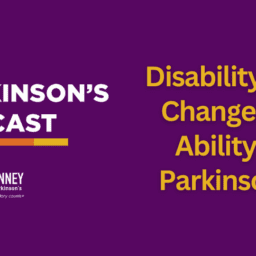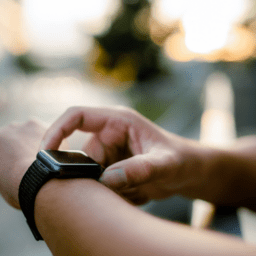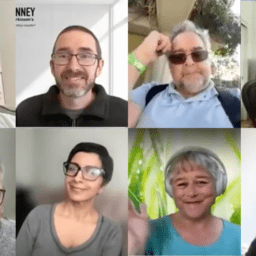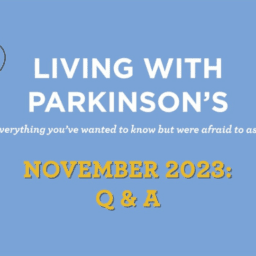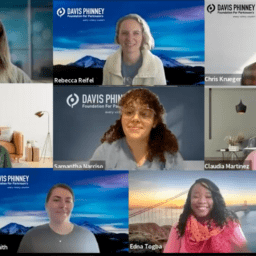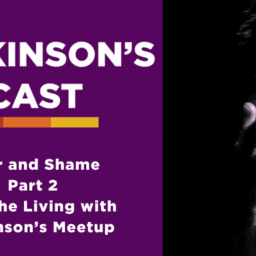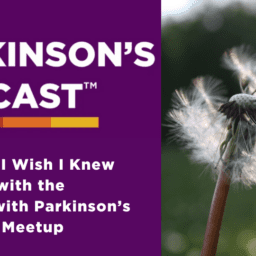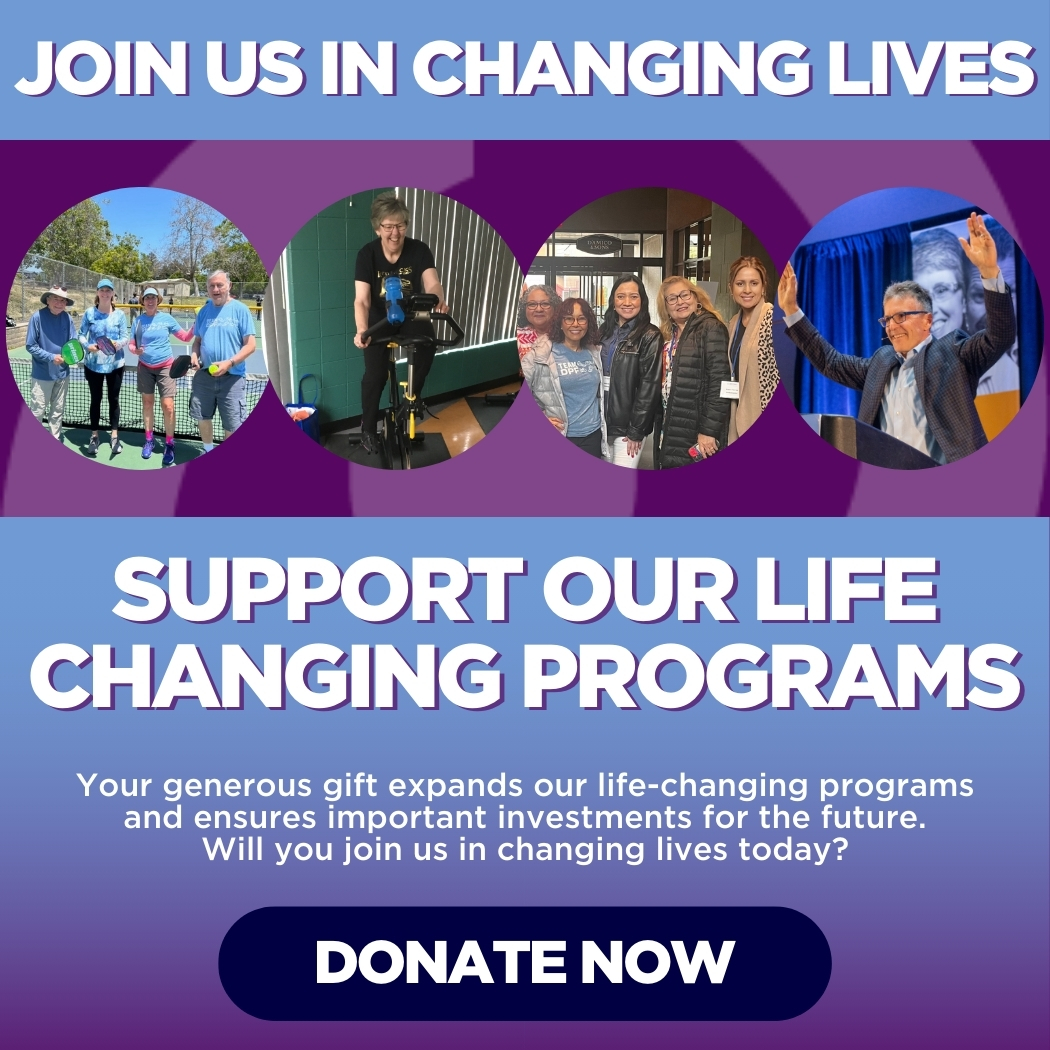During this month's meetup, we had a questions and answers panel. We discussed recent biomarker news, navigating medical procedures with Parkinson's, how to respond when people say the "wrong" thing to you about Parkinson's, and tips for dealing with speech issues, brain fog, and episodes of freezing. Watch the video recording and see other resources below. See you next month on May 18, 2023, at 1 pm MDT. Not yet registered for the monthly meetups? You can do that here.
You can read a copy of the transcript here.
Note: This is not a flawless, word-for-word transcript, but it’s close.
Questions and Answers show notes
Surprises
To start our April Living with Parkinson’s Meetup Questions and Answers, the panelists were asked what they’ve learned about Parkinson’s along the way that has surprised them the most.
The viewers' questions and the panelists' answers centered around surprise about how little is known about Parkinson’s, how slow the progression of research is, and how we still are so far from a cure. The panelists also expressed surprise that
- We don’t have great estimates of how many people have Parkinson’s
- So much money is spent on searching for single gene triggers for Parkinson’s instead of constellations of genetic variants
- Many physicians know very little about Parkinson’s
- There is so little information about less obvious Parkinson’s issues like vision complications, fatigue, and the relationship between ADHD and Parkinson’s.
Despite this general theme, there was also observation of how constructive and engaged pharmaceutical companies and their representatives are in the Parkinson’s Community.
Biomarker News
The theme of the introduction led to an important observation from Kevin, who shared his perspective on the recent news about a validated biomarker for Parkinson’s. The full report of this biomarker study is available here and is worth a read. There are many intriguing details to explore!
Kevin observed that the lack of biomarkers for Parkinson’s has been a main driver of how long the drug development process is for Parkinson’s. He observed that one could view the biomarker discovery as providing us with a tool to use as we navigate the cave of Parkinson’s: this tool won’t get us out immediately, but now we can at least see the turns and contours of the cave before we walk into them.
The results of this biomarker study will change the way Parkinson’s is studied, treated, and diagnosed. For example, specialists have already begun drafting new ways to describe what stage of Parkinson’s a person is in. This will be helpful throughout a person’s lifespan living with Parkinson’s and is very likely to accelerate the pace of research and drug development.
One way that this acceleration is likely to occur is that a diagnosis of Parkinson’s by a confirmed and measurable marker will increase the certainty of diagnoses. This will be useful for individuals as well as for improving the certainty of the conclusions drawn from research. Robynn noted a passage from the book Brainstorms that discusses how a large portion of study participants in Parkinson’s research may not actually have Parkinson’s. Because of this biomarker discovery, that no longer has to be the case.
Complications from Medical Procedures
Hospital visits can be difficult for people with Parkinson’s. They can lead to missed doses of Parkinson’s medications, and the increased stress can worsen symptoms regardless of whether the stress is caused by the reason you are in the hospital or simply by being in the hospital.
It is not just hospital stays that can have these effects: outpatient procedures and even just a common cold or emotional stress can amplify your symptoms and negatively impact the efficacy of your Parkinson’s medications. Anesthesia can be particularly problematic and lead to increased tremors as the anesthesia medication wears off. Some members of the group even mentioned significant issues, including persistent breathing difficulties following procedures that involved anesthesia.
Two common procedures warrant special consideration: receiving dental anesthesia and having a colonoscopy. At dental visits, if you are receiving local anesthetic, be sure the dentist knows that you are living with Parkinson’s and that they have a complete list of your medications. Some common anesthetics are contraindicated with common Parkinson’s medications. Several panelists also discussed colonoscopies. In addition to the stress and sometimes extended recovery time from the procedure, you should be aware that the pre-procedure flushing process can lead to days of worsened symptoms by impacting the absorption of your Parkinson’s medications. For these reasons, it is important to involve your neurologist in coordinating care you receive from other providers, especially when there is a complex procedure involved. It is also a good idea to get an Aware in Care kit.
Brain Fog
Brain fog is a common non-motor symptom of Parkinson’s. This is experienced in a variety of ways—you may have trouble finding a word or forget things more quickly and more often than you used to. There are many ways to navigate brain fog. These include developing a note-taking habit to keep reminders handy, practicing mindfulness and meditation, and being more gentle with yourself. Panelists also discussed talking with your care team about using Ritalin for clarity and fatigue, cranial sacral therapy, and paying attention to food triggers that may influence your experience of brain fog. (A food diary may help with this.)
Well-Meaning Family, Friends, and Strangers
People may sometimes say things to you about Parkinson’s that are hurtful or rub you the wrong way. They might bring up mortality or insensitively compare your experience to the experience of someone else they know. Someone might even imply that you must have done something that caused you to have Parkinson’s or that because your symptoms fluctuate you must be dishonest about having Parkinson’s. In these situations, it can be helpful to have a standard, generic response prepared so that you can quickly redirect the interaction and move on. The panelists offered a variety of useful possible responses.
Speech Issues and Speech Therapy
One of the most interesting part of the questions and answers discussion was the conversation on speech issues. Parkinson’s can affect your speech. This can relate to brain fog: you might struggle to formulate words or find the right word. You might also experience changes in your pronunciation or speech volume. These things might cause people to think you are intoxicated, and this can be upsetting and troublesome. While deep brain stimulation (DBS) can dramatically improve many symptoms, it can have negative impacts on speech.
There is ongoing research that aims to help with speech issues. One major program is the Speech Accessibility Project. Many universities also have speech pathology clinics, and these clinics sometimes have research projects or training programs for their students that can provide free or discounted sessions.
Because speech therapy can be physically and emotionally difficult, it is important to find a clinician who you enjoy working with, and as with any exercise, to do it as consistently as possible.
Tips for Navigating Freezing
Freezing of gait (FOG) is often a significant challenge for people with Parkinson’s, and many people who experience this develop personal tricks that help them "unfreeze." The panelists offered a sampling of the tricks they use, including taking a few side steps instead of going straight forward, taking a high step, adjusting and correcting posture, using visual cues like lines on the ground—even imaginary ones—or using a laser pointer, and trying to keep a certain cadence or have music playing at an appropriate tempo. Mindfulness practices and breathing exercises may also help.
World Parkinson congress
Finally, at the end of our questions and answers session, multiple panelists recommended attending the World Parkinson Congress (WPC) from July 4-7 in Barcelona. Some described their own attendance as being “life-changing.” Here is a blog post with a short description of the event.
Thanks for joining us this month, and we'll see you on May 18, 2023, at 1 pm MDT for our next Living with Parkinson's Meetup!
Additional resources
Davis Phinney Foundation Ambassadors
Tips, Tricks, and Products to Manage Parkinson’s Symptoms
Tips for Conversations about Parkinson’s
Mindfulness and Meditation Webinar
Building a Parkinson’s Care Team
YOPD and Parkinson’s with Dr. Rodolfo Savica
Gear and Gadgets for Living Well
Form to Connect Grandparents with Parkinson’s Who Are Raising Their Grandchildren
Being Well with Chronic Illness by Kat Hill
WANT MORE PRACTICAL ARTICLES LIKE THIS?
You can learn much more about living well with Parkinson’s today through our Every Victory Counts® suite of resources. Each manual is packed with up-to-date information about everything Parkinson’s. Click the link below to reserve your manual(s).
Thank you to our 2023 Peak Partners, Amneal, Kyowa Kirin, and Sunovion, and our Every Victory Counts Gold Sponsor, AbbVie Grants, for their ongoing support of these must-have manuals. Additionally, we’d like to thank Barbara and Dale Ankenman, Abby and Ken Dawkins, Bonnie Gibbons, Gail Gitin in loving memory of Gene Gitin, Irwin Narter, and Lorraine and J Wilson for their generous donations that allow us to make these resources available and free to all.


